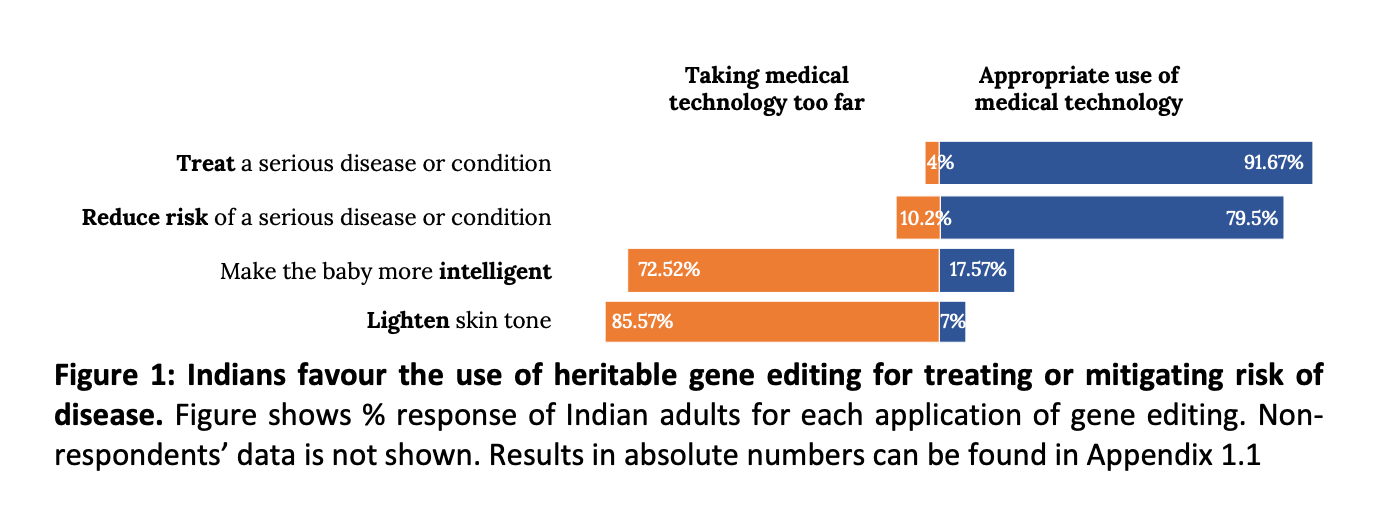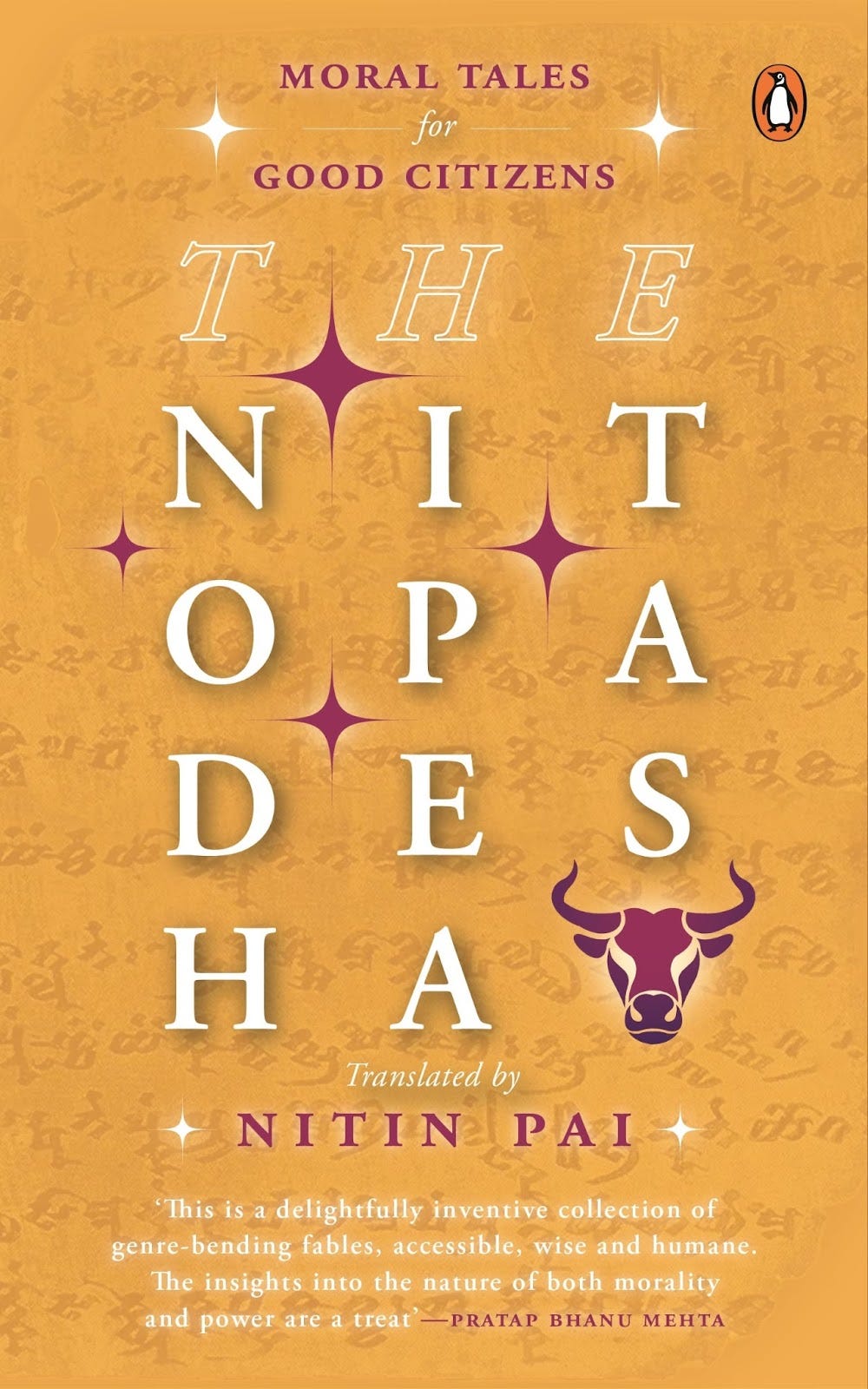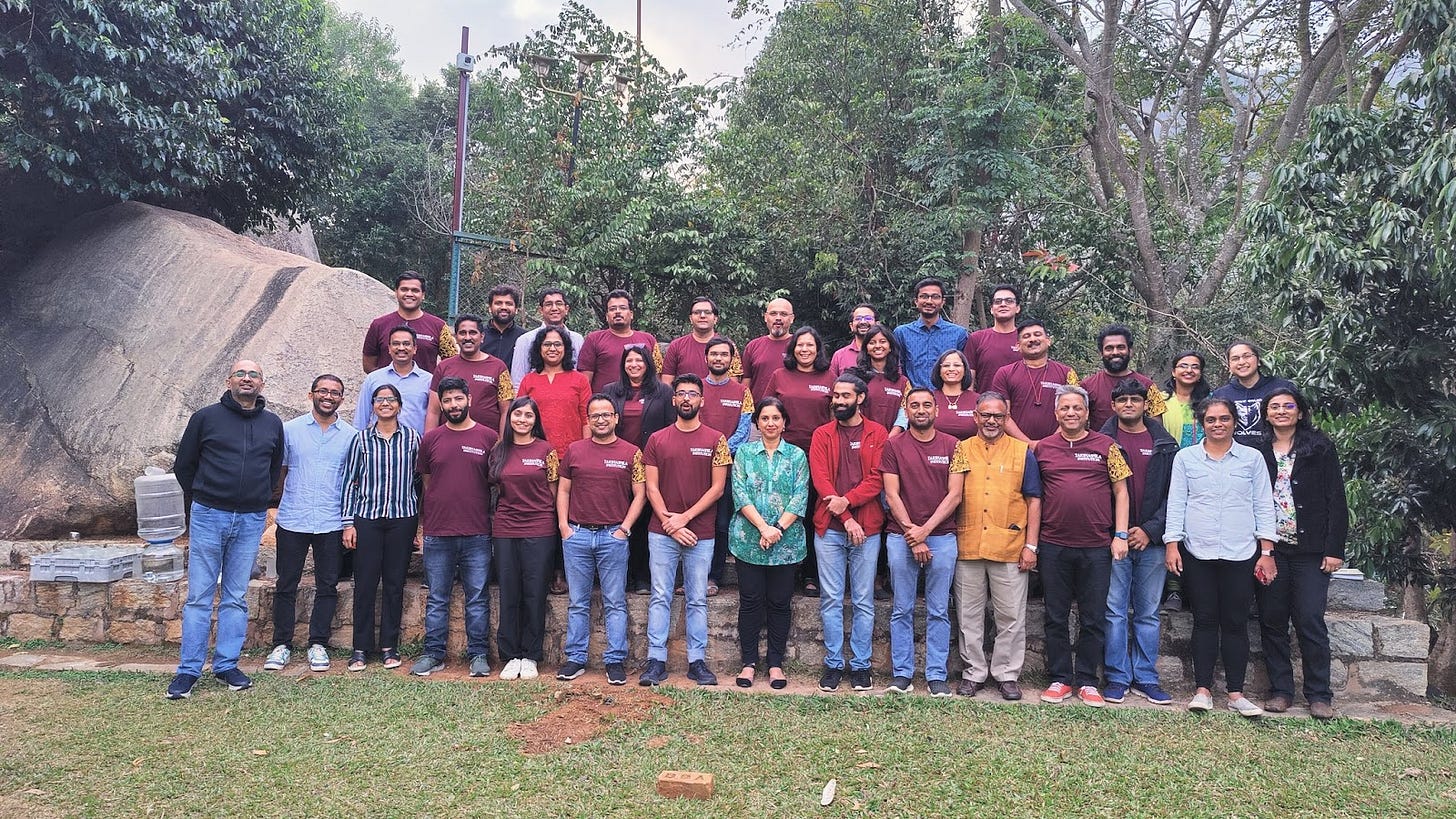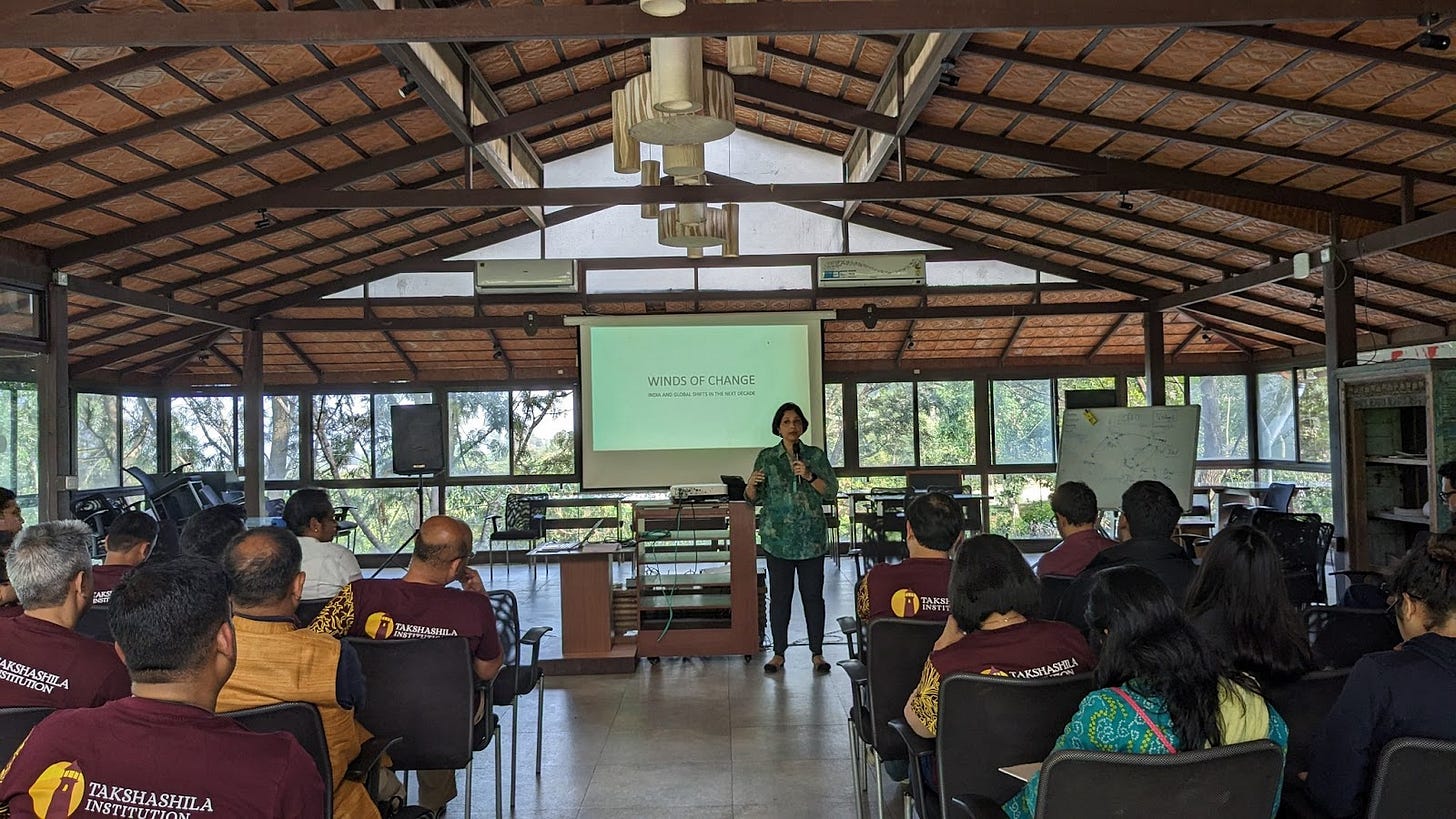What Do Indians Think of Heritable Gene Editing?
Dear Reader,
Hope you are doing well. In this edition of Takshashila Dispatch, we cover our report on the survey regarding the acceptance of heritable gene editing technologies by Indians conducted last year. We also present our work on the leadership of India’s Theatre Commands, media outlook for 2023, and Indian women in sports, as well as updates from Takshsashila’s Ideas Shala, held last weekend.
Heritable Gene Editing: Survey from India
Heritable gene editing or germline gene editing is currently banned in India. We surveyed to find out if Indians approve of its use for treating or reducing the risk of genetic diseases. The results from the survey are outlined in a new report authored by Priyal Lyncia D'Almeida and Shambhavi Naik.
From a sample size of 372 respondents, we found that Indian public views on heritable gene editing are dependent on the purported use of the technology, i.e., therapeutic, cosmetic, or enhancement:
Another interesting finding is that more religious respondents are less likely to accept gene editing technologies:
The findings from the survey suggest that governance of gene editing should allow for research & development. Awareness of its uses among people and reducing inequality in access to these technologies are other important considerations.
To gain more insights into the issue, we plan to expand the survey to at least 10,000 participants. Write to us at research@takshashila.org.in if you are interested in working more in this subject area.
Who Should Lead India’s Theatre Commands?
While India plans on establishing Joint Theatre Commands, integration through restructuring is facing hurdles in the form of self-preservation efforts due to the perceived threat to individual service identities of the Army, Air Force, and Navy. In his weekly column for The Print, Lt. Gen. Prakash Menon writes on the issue and offers some suggestions to overcome the roadblocks:
The shift to Theatre Commands cannot possibly be achieved without some makeover within each Service regarding their own identity that is primarily anchored in the three geographies of land, sea and air. The demand is of a shift in their self-concepts and is in essence about watering down the assumed ownership rights of the three environments. The inability to reach a consensus on the conceptualisation of the theatre system is probably the outcome that is rooted in each Service wanting to either preserve their individual identity or strengthen it. The Navy probably views it as an opportunity (more resources). The Air Force feels threatened (loss of control over air force assets). The Army sees both opportunities (more control) and threats (loss of manpower).
Media Outlook 2022-23 with Vanita Kohli-Khandekar
In an All Things Policy episode, Sachin Kalbag hosted Vanita Kohli-Khandekar, news and entertainment media industry expert and the author of definitive books on India's media business, discussing the outlook for the Indian media industry in 2023.
Indian Women in Sports: Challenges and Opportunities
Aditi Mutatkar, Indian badminton player and silver medallist at the Commonwealth Games (who also happens to be Takshashila’s GCPP alumna), joined Sowmya Nandan on All Things Policy to talk about the daily sports scene in India.
Nitopadesha by Nitin Pai Released Today
Not many people know that the Panchatantra and the Hitopadesha, like the Arthashastra, primarily dispense advice to princes & kings on how to acquire power and rule wisely. Their lessons of amoral statecraft are misleading when applied to citizens.
The Nitopadesha is different. It is a book of citizen-craft, offering guidance on how free citizens can shape their civic and political communities to attain yogakshema. A unique blend of fables and stories that covers politics, economics, and philosophy.
Click here to read the amazing story of how the manuscript for Nitopadesha came into Nitin’s hands!
Event Report: Takshashila’s Ideas Shala 2023
We began this new year with an exciting event - The Takshashila Ideas Shala 2023 organised by us at Discovery Village, Nandi Hills. A power-packed two days full of policy discussions, simulation exercises, spontaneous order discussions, the Nagara game and immense networking, attended by 30+ alumni and staff of Takshashila.
Here are some highlights from the weekend:
Nitin Pai started the proceedings with a briefing on the Ideas to Action (I2A) hackathon: a deep-dive exercise into solving present-day policy problems using a complex adaptive systems framework.
Over the two days, participants worked in teams to find leverage points to solve the burning issues of increasing India’s manufacturing competitiveness, raising India’s falling female labour force participation rate and designing alternatives to alcohol prohibition.
Suhashini Haidar, Diplomatic Affairs Editor with The Hindu, delivered a talk on 'Winds of Change - India and Global Shifts in the Next Decade', followed by a conversation on India’s foreign policy.
Applications for PGP Programme are Ongoing
The Post-Graduate Programme in Public Policy (PGP Programme) is a 48-week multi-disciplinary, specialised programme, designed for students who wish to gain a deeper understanding of the theoretical and rical approaches to public policy.
The curriculum includes courses on constitutional structure, software of public administration, ethical reasoning, political economy, international relations & foreign affairs, economics, and quantitative analysis in public policy. The students will also be required to undertake a Capstone project in their interest area.
That’s all from us this week. Take care!









